- Home
- Catherine Coulter
Earth Song Page 19
Earth Song Read online
Page 19
“I wish to tell you that my son is mightily pleased with himself.”
Philippa merely nodded.
“Thank you, wench.”
She swallowed a lump in her throat and said in an offhand manner, “Shall you also be pleased with your new tunic? ’Tis finished.” Before he could answer her, Philippa eased out of her chair, her blanket firmly in place around her, and handed him the tunic she’d sewn for him.
Dienwald took it from her outstretched hand and stared down at it, running his fingers over the tiny stitches, feeling the soft wool, marveling that she had made it for him and that it was so fine, the most excellent tunic he’d ever owned. It was too special to wear on this ordinary day, but he said nothing, merely pulled off his old tunic and pulled this one over his head. It felt soft against his flesh, and it fitted him perfectly. He turned to face Philippa and she smiled at him. “ ’Tis very well you look, Dienwald, quite splendid.” She reached out her hand and smoothed the cloth over his chest. Her breathing quickened and she suddenly stilled.
Dienwald stepped back quickly. “I’m leaving and I wanted to tell you to stay close to St. Erth.”
Her stomach cramped tight. “Where go you? Not into danger?”
He heard the forlorn tone and the fear, and frowned at it. “I go where I go, and ’tis none of your affair. You will stay here and not move one of your large feet from St. Erth. When I return, I will decide what to do with you.”
“You make me sound like entrails tossed out of the cooking shed.”
Dienwald merely smiled at that, touched his fingertips to her cheek, then leaned down and kissed her mouth. Still smiling, he jerked the blanket from her breasts, gazed down at them, kissed one nipple, then the other.
“Don’t do that!”
He straightened, gave her a small salute, and strode from the room.
He began whistling again as the door closed firmly behind him. Philippa just stood there, the blanket bunched around her waist. He’d worn his new tunic.
Dienwald didn’t think of her as anything remotely close to “entrails,” but he didn’t know what to do with her. What he wanted to do, in insane moments, was take her again and again until he was sated with her. And the insane moments seemed to be coming more and more often now; in fact, were he to count his errant thoughts, the moments would melt together.
He cursed and gave Philbo a stout kick in the sides. The destrier snorted and jumped forward. Northbert, surprised, kicked his own destrier into a canter, as did Eldwin, who rode on his left side.
Dienwald could remember the fragrance of her sweet woman’s scent, and something else more elusive—perhaps ’twas the essence of gillyflowers, he thought, dredging the scent from his childhood memories.
The wench had bewitched him and beset him, curse her for the guileless siren she was. And somehow she’d made him like it and want more of it, more of her. He’d very nearly taken her maidenhead the previous night, and he hadn’t even drunk enough ale to account for such stupidity. No, he’d just thought of her, seeing her in his mind’s eye sleeping in her narrow bed in the steward’s chamber, and he’d left Graelam to stare after him, their chess game still undecided. He would have taken her had she not awakened with that loud shriek in his face.
What was he to do with the damned wench? He sighed, now picturing his son strutting about in his new clothes, bragging about the Maypole. His son, who just this morning hadn’t carped and crabbed quite so much about being sacrificed to studies with Father Cramdle.
The wench was taking over St. Erth. Everywhere he saw her influence, her touch. It was irritating and disconcerting. He didn’t know what to do about it.
It was Northbert who pulled him from his melancholy thoughts. “Master, what do you expect to find?”
“We didn’t search before. We buried the dead and came back to St. Erth. I wish to find something to prove that Sir Walter ordered the burning and the killings. That or find someone who mayhap saw him or recognized one of his men.”
Northbert chewed on that for several miles. Finally he said, “Why not just kill the malignant bastard? You know he’s responsible, as do all the rest of us. Kill him.”
Dienwald wanted to kill Walter, very much, but he shook his head. He wanted things done right. He wanted to keep Graelam’s trust and his friendship. “Lord Graelam needs proof; then we will argue together to determine who gets to scatter the bastard’s bowels.”
“Ah,” said Northbert, nodding his ugly head. “Lord Graelam includes himself now. ’Tis good, methinks.”
They reached the southern acres of St. Erth late that afternoon. The desolation was shattering. There was naught but emptiness and black ruins. There was only the occasional caw of a rook. Curls of smoke still rose from some of the burned huts. There were a few peasants prodding the burned remains in leveled hovels, and Dienwald drew up and began to ask his questions.
Philippa was bored. More than bored, she’d discovered what Dienwald’s errand was and she was worried, despite the fact that he was a trained fighter and no enemy was supposed to be where he was going.
She accepted without question that her cousin Sir Walter de Grasse was a black villain. She just wished there was something she could do.
She wore her new gown that afternoon and she looked proud and very pretty, so Old Agnes told her, very much the proper mistress. Then Agnes sought confirmation from Gorkel, who looked at Philippa and grunted, his hideous face achieving a repellent smile. She’d cut a narrow piece of wool and tied it around her hair. As for Crooky, he was feeling expansive in his own new clothes, which were still very clean, and praised her to her eyebrows. Philippa expected the worst and wasn’t disappointed:
She sweetly sews for all of us, this lovely
maid whose name’s not Mary.
Our sweet lord who stole her wool aches to
drink from her sweet dairy.
She made him a tunic and kissed it pure
Our sweet lord wonders what to do with her.
Philippa cheered loudly and the other servants in the hall quickly joined her. “It rhymed, truly,” she said, wiping her eyes with the back of her hand. “Though your sentiments don’t do the master justice.”
Crooky, in a new mood of self-doubt, merely said, “Nay, mistress, ’twas hideous. I must do better, aye, I must tether my wayward thoughts and bring them to smoothness and pleasure to the ear. Aye, I will beg Father Cramdle to write it down for me.”
Philippa said, “You have lightened me for a few moments, Crooky, and I thank you. Now, before you go to the priest, tell me when the master will return.”
“No one knows,” Gorkel said, stepping forward. “He’s gone to the southern borders.”
She knew that, and sat there worrying her thumbnail. She paced the great hall. In a spate of feverish activity to distract herself, she had lime dumped down the privy hole in the guardroom. She spaded the small garden near the cistern, willing the few vegetables to grow. She watched the women sewing, always sewing, and she praised them, and joined in herself for an hour, making another tunic for the master. Old Agnes ran her arthritic fingers over it and gave her a sly smile. Philippa went to the cooking shed and spoke with Bennen, a stringy old man who knew more of herbs than anyone she had ever known and presided over the cooking with what Philippa’s mother had called the “special touch.” He got along well with St. Erth’s withered cook, which was a good thing, because no one else seemed to get along with him. She spoke of several dishes she herself liked, and Bennen committed them to memory, and called her “mistress” and smiled at her, his toothless mouth wide. If Dienwald wanted to feel trapped, he needed only listen to his own people. She even visited Eleanor the cat and her four kittens, all healthy and mewing loudly.
The night was long, and Philippa wished Dienwald were there, kissing her, fighting with her, trying to fit himself between her legs even as he fought himself.
The next morning, Edmund said to her after watching her crumble a particularly fine hunk of
cheese and toss it to one of the castle dogs, “You didn’t sleep well, Maypole. You look sour and your eyes are all dark-circled. My father has a nice palfrey that should be big enough for a female your size. Come riding, Philippa. You won’t miss my father so much.” He added after a little thought, “Aye, I miss him as well. We will both ride.”
“I don’t miss him, but I should like to ride.”
The palfrey’s name was Daisy and she was docile and well-mannered. Philippa, her gown hiked up to her knees, her legs and feet bare, sat her horse, smiling down at Ogden, the head stableman. He was wildly red-haired and so freckled she couldn’t make out the tone of his flesh beneath.
Gorkel approached and said, “You’ll want men with you, mistress. The master ordered me to . . .” He faltered, and Philippa could only stare, it was so unexpected of the man who’d without hesitation snapped the steward’s neck.
“I understand,” she said. “The master doesn’t want me perchance to lose myself in the wilds of Cornwall.”
Gorkel beamed at her. “Aye, mistress, thass it. I don’t ride well, but I’ll fetch men who will accompany you.”
The afternoon was sunny, only a light breeze stirring the air, and the countryside was wild and hilly, trees bowed from the fierce winds and storms that blew from the Irish Sea just to the north—but not now, not during Dienwald’s fanciful deep spring.
Edmund allowed that she looked less testy upon their return to St. Erth some three hours later.
“You must take care with your flattery, Master Edmund, else I may mistake your sweet words for affection.”
To which Edmund snorted in disgust and said with a dignity that sat well on his boy’s shoulders, “I am not a churl.”
“Not today, at least,” she said, and grinned at him.
Edmund didn’t retort to that because they’d just crossed into the inner bailey and he was staring at a pack mule loaded with bundles, three men in Wolffeton colors lolling around the mule.
Perfect Kassia, the little princess, the glorious little lady, had sent clothing, just as she’d promised. An entire mule-load of clothing. Philippa gasped as she unwrapped the coarse-wool-wrapped garments. Gowns, overtunics, fine hose, shifts of the softest cotton and linen, ribbons of all colors, even soft leather slippers large enough for her, the toes pointed upward in the latest fashion from Eleanor’s court. It was too much and it was wonderful and Philippa felt like the most sour-natured of wretches. She read the letter from Kassia, handed to her by one of the men. Mary was thanked for the hospitality of St. Erth, and Philippa could practically see Kassia smiling as she penned the words. The close of the letter made her frown a bit: “ . . . do not worry if things transpire somewhat awry. Dienwald makes his own decisions and he is strong and unswerving. Don’t worry, please do not, for all will be as it should be.”
Now, what did that mean? Philippa wondered as she rolled the sheet of foolscap and retied it. She looked at the clothing spread out on the trestle table in the great hall. So much, and all for her. Odd how she’d forgotten how much she’d owned at Beauchamp, and how dear one simple gown had now become to her.
She hummed and arranged the clothing in the steward’s room. Then she began to work, quickly and happily, still humming. She sent Gorkel to direct the children to collect fresh rushes after she measured him for a new tunic. She asked Bennen for rosemary to scent it. More lime was dumped down the privy, for the easterly winds were strong.
The following morning, she and Edmund rode out from St. Erth again, this time with three men in attendance. Gorkel was master in Eldwin’s absence, and he was directing the remaining men in the practice field. As they rode out, she could hear the men’s shouts and yells and the dull thuds of the lances as they rode against the quintains. She wanted to see the cattle in the northern pastures, to make a count so she could be certain that her steward’s ledgers were correct. She was garbed anew and felt like a very fine lady surrounded by her courtiers. Then it rained and she worried and fretted that her new clothing would be ruined. The cattle counted, they returned to St. Erth, Philippa to her steward’s books.
On the third morning, she wore the gown she’d sewed for herself and left her legs bare. It didn’t matter, for the day was warm and the master wasn’t here to see her and perhaps smile at her with lecherous intent. Ah, but she missed him and his hands and his mouth and the feel of his hard body. She missed his smile and his volley of words. She missed arguing with him and baiting him. She thought suddenly that debauching him was an interesting notion—folly, to be sure, but seductive folly. Her fingers flexed as she remembered holding his head on her lap that morning and how he’d turned his face inward and kissed her. She doubted she would have time to debauch him before he’d already done the debauching. She laughed aloud, and Edmund stared at her.
As to her future, she refused to think about it. As to St. Erth’s future, it looked much brighter. With luck, there would be some cattle to sell and coins in Dienwald’s coffers. She would need to check on the pigs just as she had on the cattle. She wanted nothing left to chance or hearsay. Her entries in her steward’s ledgers grew longer, by the hour, it seemed, and she felt pleasure for St. Erth’s master as she worked. Repairs were needed in St. Erth’s eastern wall. Soon, perchance this fall, there would be enough coin to hire them done. She whistled and worked faster.
She turned her attention back to Edmund as he demanded to know why she, a heedless maypole of a girl, could read and write and cipher. “Because my father wished it, I suppose,” she said, frowning as she spoke the words, the same reply she’d given Edmund’s father. “I do wonder, though, why he wished it. My sister, Bernice, has naught but space in her head, that and visions of chivalrous knights singing praises to her eyebrows. Aye, she’s a one, Master Edmund.”
“Is she a maypole like you?”
Philippa shook her head. “She’s short and plump and has a pointed chin and very red lips. She pouts most virtuously, having practiced before a mirror for the past six years.”
“And she had all your suitors?”
“Must you keep asking me questions? All right, there was Ivo de Vescy, and he was wildly in love with me.”
“His name sounds shiftless. Did he truly wish to wed with you? Was he a giant? You’re almost as tall as my father.” Edmund paused, then shook his head. “Mayhap not.”
“You’re naught but a little boy. How can you possibly tell from down there? I come nearly to your father’s nose.”
“He likes small women, short women. Just look at Alice and Ellen and Sybilla—”
“Who are Ellen and Sybilla?”
Edmund shrugged. “Oh, I forgot. Father married Ellen to a peasant when he got her with child, and Sybilla sickened with a fever and died. But Alice is small, not like you.”
Philippa wanted to cuff his ears and stuff one of her new leather slippers into his mouth. She wanted to scream so loud that it would chase the cawing rooks away. Edmund’s flowing child’s candor had smitten her deep, very deep, with pain; she wanted to weep. Of course Dienwald had made no secret of his couplings. He’d said merely that they saved her maidenhead. And she’d not cared then because he was a stranger she hadn’t come to know yet. But now she had and she wanted to send her fist into his belly and hear him bellow with pain. She wanted . . .
“Father will send you back to Lord Henry. He has no choice. He doesn’t want to wed, ever. Thass what he tells everyone.”
“That’s,” Philippa said automatically. “Why do you believe that?”
Edmund shrugged. “I heard him tell Alain once that women were a man’s folly, that if a man wished more than a vessel, he was naught but a windy fool and an ass.”
“Your memory rivals a priest’s discourse in its detail.”
This was greeted with another shrug. “My father knows everything. Thass . . . that’s why he doesn’t use you as he does the others. He’d be ashamed, perchance worried that he would have to wed you. Is your father very powerful?”
“V
ery powerful,” Philippa said. “And very mean and very strong and—”
It was then that Edmund grunted and jerked at his pony’s reins. “Look yon, Philippa! Men, and they’re coming toward us!”
15
Philippa saw the men and felt her heart sink to her toes. They were riding hard, and even from a distance they looked determined. Who were they?
“Your father, Edmund?”
“Nay, I don’t recognize Father or Northbert or Eldwin, and they ride the most distinctive destriers. I don’t know who they are. We must flee, Philippa.”
The man-at-arms, Ellis, turned to Philippa, consternation writ clear on his face. “There are too many of them, mistress. Ride! Back to St. Erth. We can’t fight them.”
Philippa, without a word, jerked on her palfrey’s reins and dug her bare heels into the mare’s sides. She looked sideways at Edmund and realized that his pony didn’t have the endurance to keep pace with the rest of them. Their pursuers’ horses were pounding toward them, ever closer, their hooves kicking up whorls of dust into the clear air. Who were they?
It didn’t matter. Philippa lowered her head and urged her palfrey faster. When Edmund’s pony faltered, she’d simply bring him onto Daisy’s back with her. Daisy was strong and stout of heart. Philippa gently tugged Daisy’s reins to the right and drew closer to Edmund.
Sir Walter de Grasse looked toward the fleeing men, the girl and young boy protected in the midst of them. His destrier, a powerful blooded Arabian, couldn’t be outrun, particularly by that muling mare Philippa was riding. He really didn’t care about the others. Walter was pleased; he smiled and felt the wind tangle his hair and make his eyes tear. At last. He’d waited and planned and waited. Finally she’d ridden this way, and that whoreson peasant Dienwald wasn’t with her. He was back scrounging about in his burned southern acres, finding nothing because Walter never left anything to find. Dead bodies were the only witnesses. Walter urged his destrier faster. If only Philippa knew that it was he, her own cousin, in pursuit, she would wave and flee from Dienwald’s men. He noticed the little boy beside her on his laboring pony and wondered who he was.

 The Cove
The Cove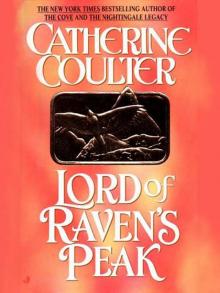 Lord of Raven's Peak
Lord of Raven's Peak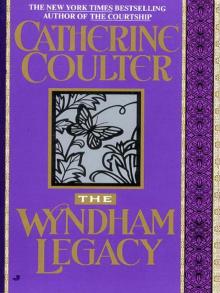 The Wyndham Legacy
The Wyndham Legacy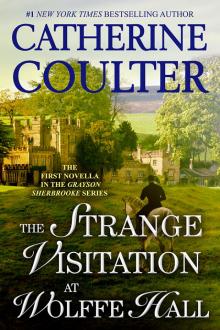 The Strange Visitation at Wolffe Hall
The Strange Visitation at Wolffe Hall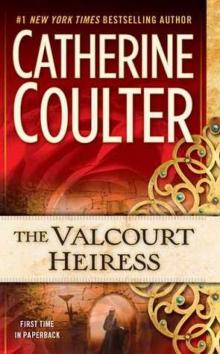 The Valcourt Heiress
The Valcourt Heiress Bombshell
Bombshell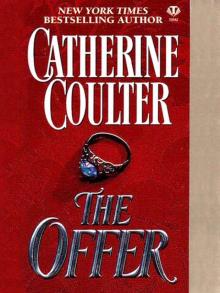 The Offer
The Offer The Edge
The Edge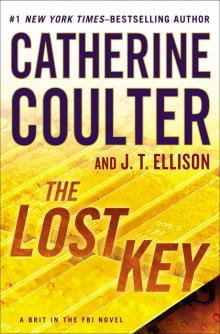 The Lost Key
The Lost Key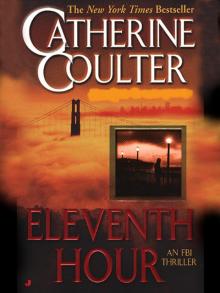 Eleventh Hour
Eleventh Hour Blindside
Blindside Devil's Daughter
Devil's Daughter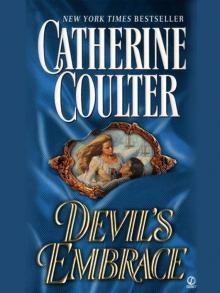 Devil's Embrace
Devil's Embrace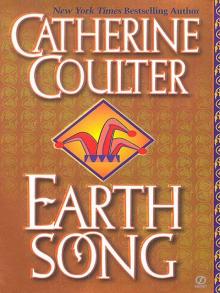 Earth Song
Earth Song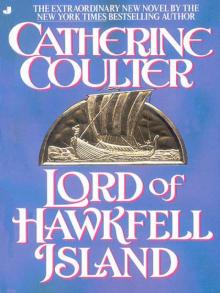 Lord of Hawkfell Island
Lord of Hawkfell Island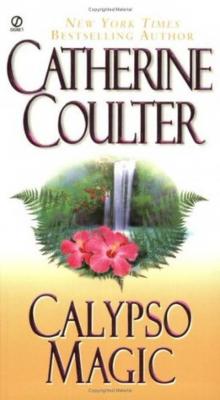 Calypso Magic
Calypso Magic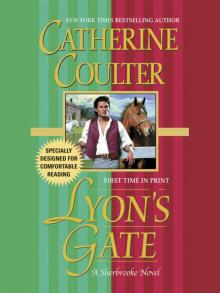 Lyon's Gate
Lyon's Gate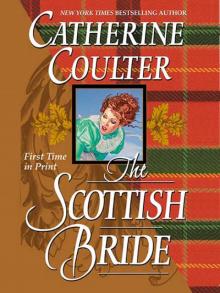 The Scottish Bride
The Scottish Bride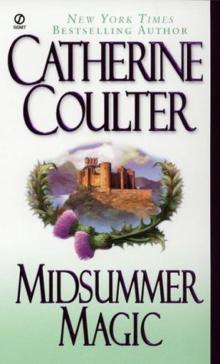 Midsummer Magic
Midsummer Magic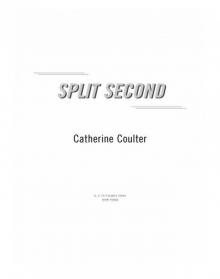 Split Second
Split Second Enigma
Enigma Blowout
Blowout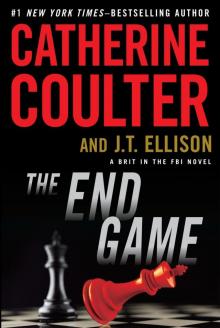 The End Game
The End Game Double Take
Double Take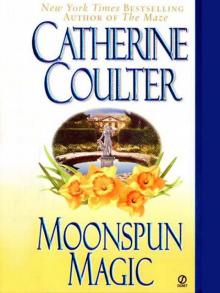 Moonspun Magic
Moonspun Magic The Courtship
The Courtship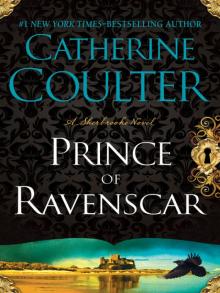 Prince of Ravenscar
Prince of Ravenscar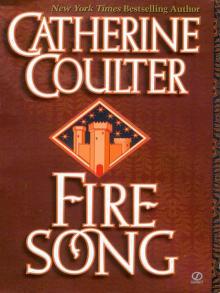 Fire Song
Fire Song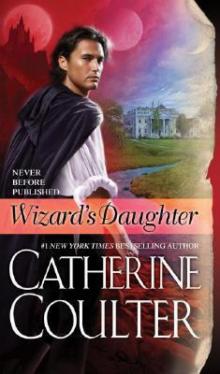 Wizard's Daughter
Wizard's Daughter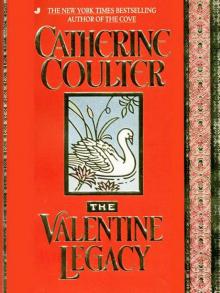 The Valentine Legacy
The Valentine Legacy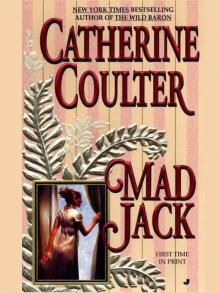 Mad Jack
Mad Jack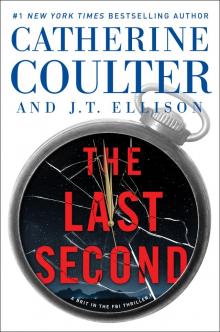 The Last Second
The Last Second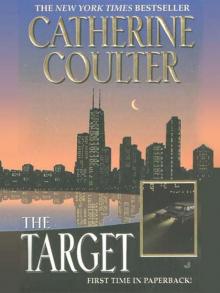 The Target
The Target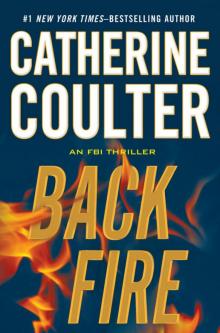 Backfire
Backfire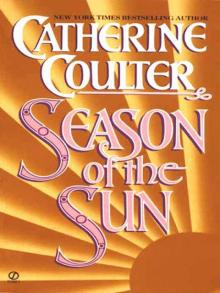 Season of the Sun
Season of the Sun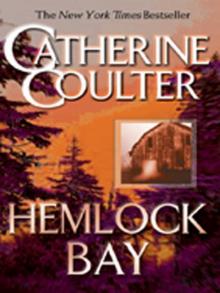 Hemlock Bay
Hemlock Bay Insidious
Insidious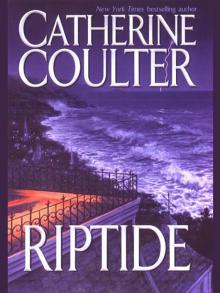 Riptide
Riptide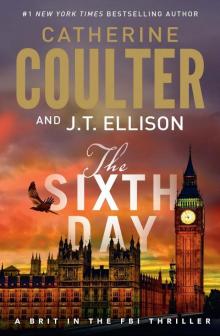 The Sixth Day
The Sixth Day Secret Song
Secret Song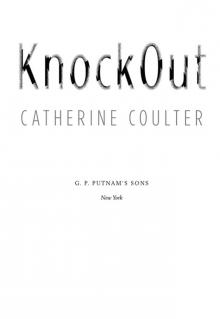 KnockOut
KnockOut Jade Star
Jade Star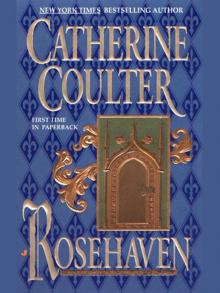 Rosehaven
Rosehaven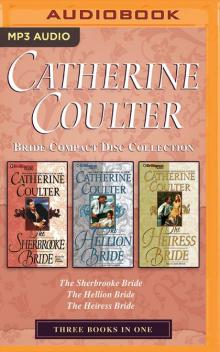 The Hellion Bride
The Hellion Bride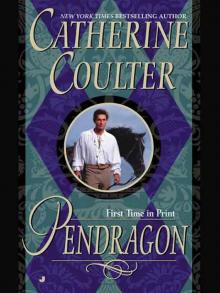 Pendragon
Pendragon Vortex
Vortex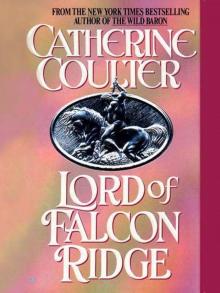 Lord of Falcon Ridge
Lord of Falcon Ridge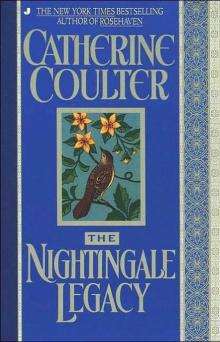 The Nightingale Legacy
The Nightingale Legacy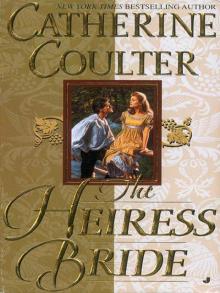 The Heiress Bride
The Heiress Bride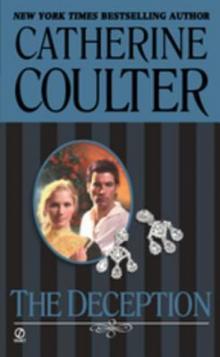 The Deception
The Deception The Maze
The Maze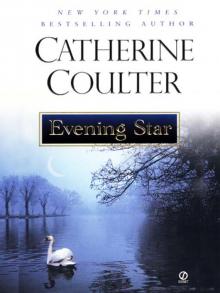 Evening Star
Evening Star Wild Star
Wild Star The Final Cut
The Final Cut Paradox
Paradox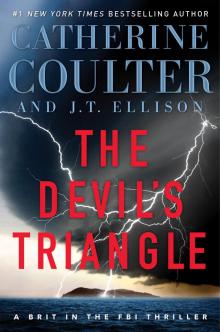 The Devil's Triangle
The Devil's Triangle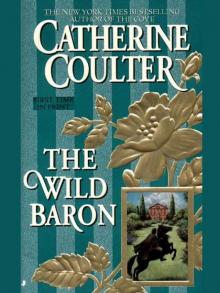 The Wild Baron
The Wild Baron Point Blank
Point Blank Labyrinth
Labyrinth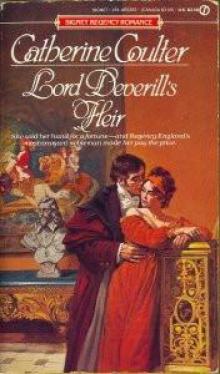 Lord Deverill's Heir
Lord Deverill's Heir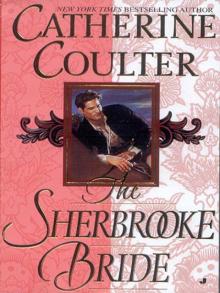 The Sherbrooke Bride
The Sherbrooke Bride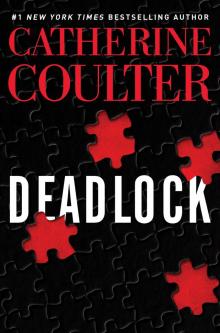 Deadlock
Deadlock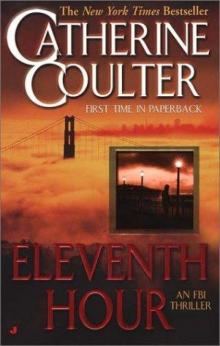 Eleventh Hour f-7
Eleventh Hour f-7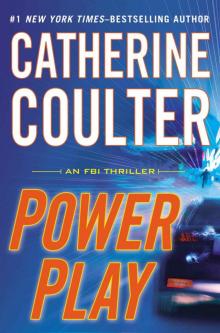 Power Play (An FBI Thriller)
Power Play (An FBI Thriller)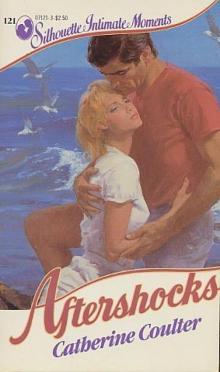 Aftershocks
Aftershocks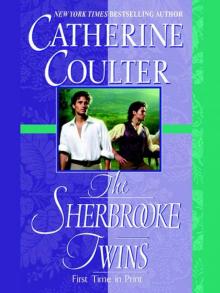 Sherbrooke Twins tb-8
Sherbrooke Twins tb-8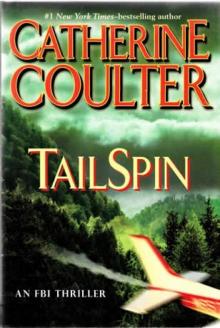 Tail Spin ft-12
Tail Spin ft-12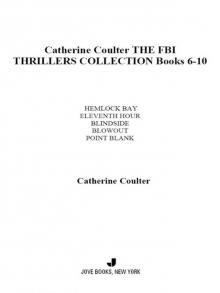 The FBI Thrillers Collection
The FBI Thrillers Collection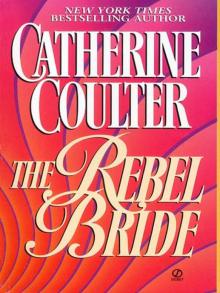 The Rebel Bride
The Rebel Bride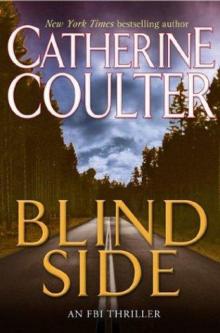 Blindside f-8
Blindside f-8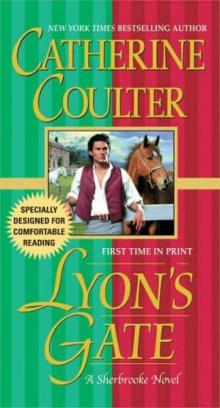 Lyons Gate tb-9
Lyons Gate tb-9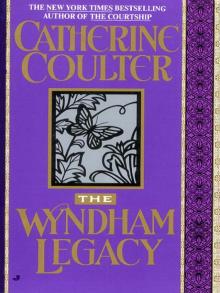 Wyndham Legacy
Wyndham Legacy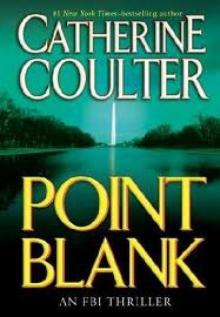 Point Blank f-10
Point Blank f-10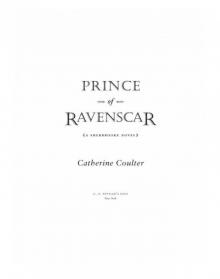 The Prince of Ravenscar
The Prince of Ravenscar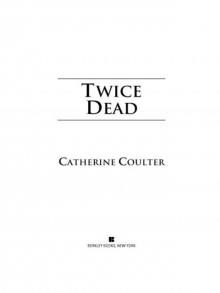 Twice Dead
Twice Dead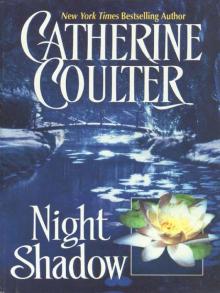 Night Shadow
Night Shadow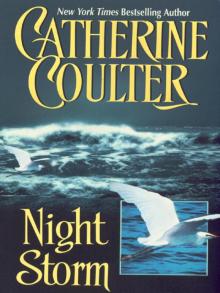 Night Storm
Night Storm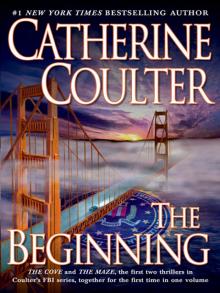 The Beginning
The Beginning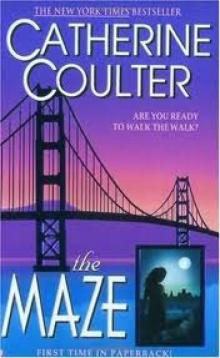 The Maze ft-2
The Maze ft-2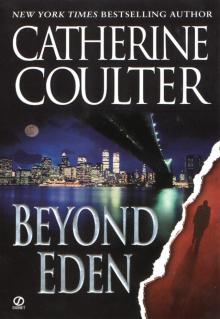 Beyond Eden
Beyond Eden The FBI Thrillers Collection: Vol 11-15
The FBI Thrillers Collection: Vol 11-15 FALSE PRETENSES
FALSE PRETENSES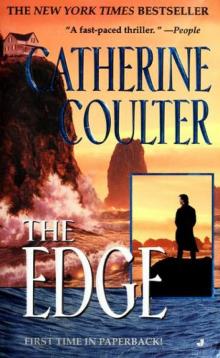 The Edge f-4
The Edge f-4 Bombshell (AN FBI THRILLER)
Bombshell (AN FBI THRILLER)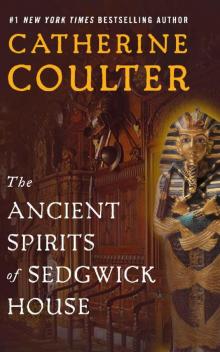 The Ancient Spirits of Sedgwick House (Grayson Sherbrooke's Otherworldly Adventures Book 3)
The Ancient Spirits of Sedgwick House (Grayson Sherbrooke's Otherworldly Adventures Book 3)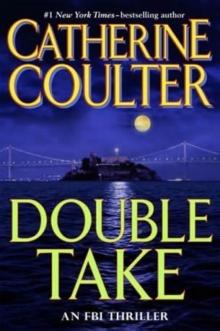 Double Take ft-11
Double Take ft-11 The Heir
The Heir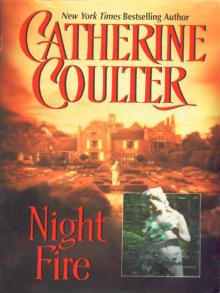 Night Fire
Night Fire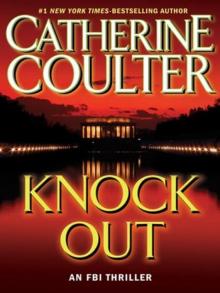 KnockOut ft-13
KnockOut ft-13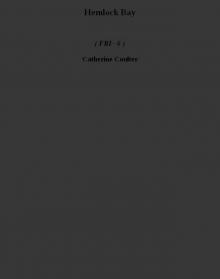 Hemlock Bay f-6
Hemlock Bay f-6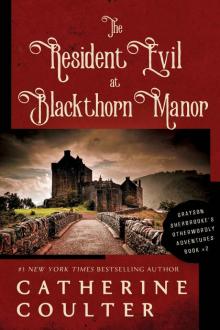 The Resident Evil at Blackthorn Manor (Kindle Single) (Grayson Sherbrooke's Otherworldly Adventures Book 2)
The Resident Evil at Blackthorn Manor (Kindle Single) (Grayson Sherbrooke's Otherworldly Adventures Book 2) Blowout ft-9
Blowout ft-9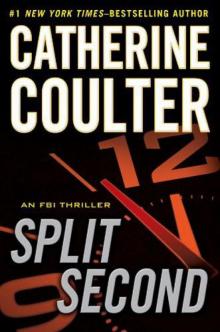 Split Second f-15
Split Second f-15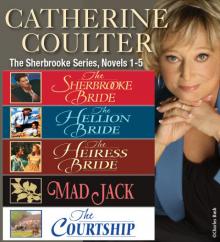 The Sherbrooke Series Novels 1-5
The Sherbrooke Series Novels 1-5 Impulse
Impulse Paradox (An FBI Thriller Book 22)
Paradox (An FBI Thriller Book 22)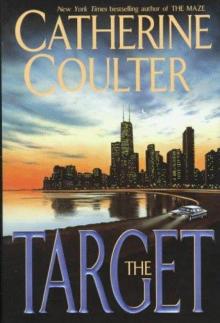 The Target f-3
The Target f-3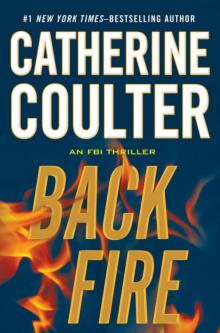 Backfire fst-16
Backfire fst-16 Born To Be Wild
Born To Be Wild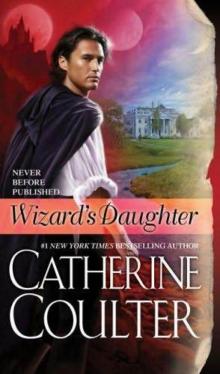 Wizards Daughter tb-10
Wizards Daughter tb-10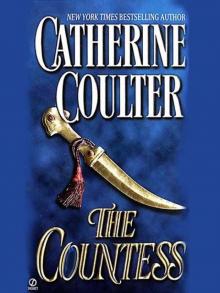 The Countess
The Countess